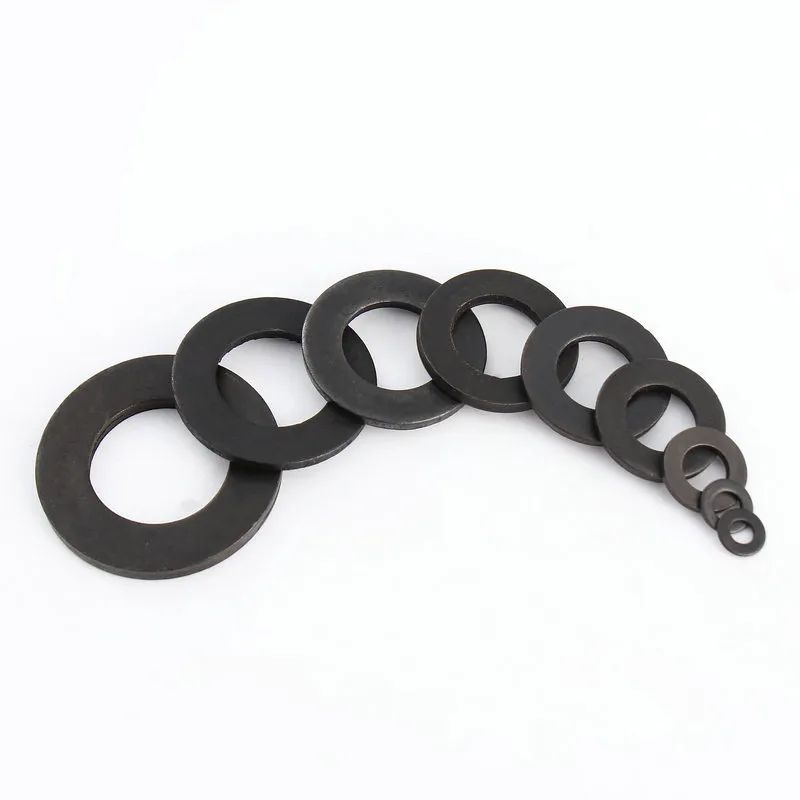

12mm Flange Nut Specifications and Applications for Secure Fastening Solutions
Dec . 20, 2024 23:06 Back to list
12mm Flange Nut Specifications and Applications for Secure Fastening Solutions
Understanding the 12mm Flange Nut An Essential Fastening Component
When it comes to fastening applications in both industrial and domestic settings, the 12mm flange nut stands out as a vital component. This seemingly simple hardware item plays a crucial role in ensuring the stability and integrity of various assemblies, ranging from automotive components to construction projects. In this article, we will delve into what a 12mm flange nut is, its applications, advantages, and why it is an essential tool in modern engineering.
What is a 12mm Flange Nut?
A 12mm flange nut is a type of nut that features a wide flange at one end, which serves as an integrated washer. The 12mm designation refers to its nominal size, defining the distance across the flat sides of the nut. Flange nuts come in various dimensions, but the 12mm version is particularly popular due to its versatility in applications.
The flange is crucial because it provides a larger bearing surface than a standard nut. This design helps to distribute the load over a wider area, reducing the risk of damage to the part being fastened and enhancing stability. Additionally, many flange nuts are designed with locking features or are manufactured from materials that offer resistance to vibration, further enhancing their effectiveness in demanding environments.
Applications of 12mm Flange Nuts
12mm flange nuts are common in numerous applications across different industries
. They are extensively used in the automotive industry, where they secure essential components such as wheels, axles, and engine mounts. In machinery and equipment manufacturing, they hold parts together in high-stress environments, ensuring that operations remain smooth and safe.Moreover, the construction sector also relies heavily on flange nuts. They are frequently used in metal structures, HVAC installations, and other applications requiring strong connections. Their ability to resist loosening due to vibrations makes them ideal for heavy machinery and structural components where safety is paramount.
12mm flange nut

Advantages of Using 12mm Flange Nuts
There are several advantages to using 12mm flange nuts, making them a preferred choice for many engineers and designers. Firstly, their integrated flange reduces the need for additional washers, simplifying assembly and saving time and costs in production.
Another significant benefit is their enhanced load distribution. The wide flange helps prevent damage to the surfaces being clamped and minimizes the risk of deformation. This is particularly important in sensitive applications where uneven pressure can lead to failure.
Furthermore, 12mm flange nuts are often designed to resist loosening caused by vibrations. Many manufacturers offer flange nuts with special features, such as serrated flanges or nylon inserts, that provide additional locking mechanisms. This ensures a more secure fit, prolonging the lifespan of the assembly and reducing maintenance requirements.
Conclusion
In conclusion, the 12mm flange nut is a fundamental component that plays a pivotal role in various applications across different industries. Its unique design, which combines a nut and washer into one component, offers significant advantages in terms of load distribution, assembly efficiency, and resistance to vibrations. Whether in automotive, machinery, or construction settings, choosing the right fastening components is critical to ensure safety and reliability.
As technology advances and demands on manufacturing processes increase, the importance of reliable fastening solutions like the 12mm flange nut cannot be overstated. Investing in high-quality flange nuts not only guarantees performance but also enhances the overall integrity of mechanical assemblies, contributing to the success of any project.
Latest news
-
High-Strength Hot Dip Galvanized Bolts - Hebei Longze | Corrosion Resistance, Customization
NewsJul.30,2025
-
Hot Dip Galvanized Bolts-Hebei Longze|Corrosion Resistance&High Strength
NewsJul.30,2025
-
High-Strength Hot-Dip Galvanized Bolts-Hebei Longze|Corrosion Resistance&High Strength
NewsJul.30,2025
-
Hot Dip Galvanized Bolts-Hebei Longze|Corrosion Resistance&High Strength
NewsJul.30,2025
-
Hot Dip Galvanized Bolts - Hebei Longze | Corrosion Resistance, High Strength
NewsJul.30,2025
-
High-Strength Hot Dip Galvanized Bolts-Hebei Longze|Corrosion Resistance, Grade 8.8
NewsJul.30,2025

